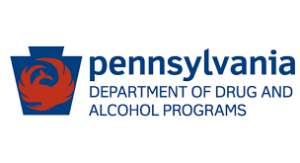PA Health Policy Update for the Week of April 18-22
The following is an update of selected state health policy developments in Pennsylvania for the week of April 18-22, 2022. (Some of the language used below is taken directly from state documents.)
 Governor Wolf
Governor Wolf
Governor Wolf has signed House Bill 245, which reduces the graduate medical training required for international medical graduates from three years to two years; removes the limit on the number of affiliated facilities at which a doctor with an institutional license may practice or teach; and expands and clarifies the scope of practice of temporarily licensed physicians.
General Assembly
- The state House will be in session next Monday (4/25), Tuesday (4/26), and Wednesday (4/27). The Senate is in recess.
- The House Professional Licensure Committee will meet on Monday, April 25 at 10:00 a.m. to consider House Bill 1956, which creates a license for certified anesthesiologist assistants.
- The House Health Committee will convene on Tuesday, April 26 at 9:30 a.m. to consider the following bills.
-
- House Bill 398, which requires a non-custodial parent of a child to enroll their child in their own health insurance plan before seeking Medicaid coverage.
- House Bill 2441, which gives legislative agencies access to records information for research purposes under the Vital Statistics Law.
- Senate Bill 317, which provides for the authority to prescribe antibiotics to treat sexually transmitted infections without having examined the individual for whom the drug is intended, in accordance with the Expedited Partner Therapy in the Management of Sexually Transmitted Diseases guidance issued by the CDC.
- Senate Bill 818, which seeks to align procedures permitted in licensed ambulatory surgery centers with those of the federal Centers for Medicare & Medicaid Services (CMS).
 Department of Human Services
Department of Human Services
- Act 2 of 2022 appropriated $225 million to support the health care workforce needs of hospitals and behavioral health providers. The law directed that the funding be used strictly for recruitment and retention payments to direct care staff. Entities receiving payments under Act 2 must submit a report to the Department of Human Services (DHS) documenting staff retention payments by September 30, 2022 and a report on staff recruitment spending by December 31, 2022. DHS has posted an FAQ describing how Act 2 works and has added to that FAQ a template for submitting the required reports. Find the FAQ and the report template here.
- DHS has updated its calendar for delivering Remittance Advice and corresponding checks to extend into early June.
- DHS has issued a Medical Assistance Bulletin to announce the addition of new procedure codes to the Medical Assistance program fee schedule for the provision of personal care services that are provided through home health agencies to Medicaid beneficiaries under 21 years of age. Find that bulletin here.
- DHS has posted a notice to Medical Assistance fee-for-service providers reminding them of the recommended documentation needed to support the review of authorization requests for private duty/shift nursing and home health aide service hours provided to children under the age of 21. Find that notice here.
- DHS has shared the minutes of the February 23 meeting of the Medical Assistance Advisory Committee’s consumer subcommittee.
- DHS has updated its “Monthly Physical Health Managed Care Program Enrollment Report” to include March 2022 data.
Department of Health
- Keara Klinepeter has resigned as Pennsylvania’s Acting Health Secretary. She will be replaced by the state’s Physician General, Dr. Denise Johnson. Learn more from this Wolf administration news release.
- The Secretary of Health issued a letter to the hospital community clarifying that the intention of the recently issued innovative hospital guidance was to preserve access to care in rural communities in a financially sustainable way. Find a copy of that letter here.
- The Department of Health has updated its guidance to providers caring for adults and children with multisystem inflammatory syndrome.
- The Department of Health has updated its information about state-sponsored free COVID-19 testing sites to reflect that it currently operates such sites in Berks, Blair, Centre, and Clinton counties and at Edinboro University in Erie. Learn more about the locations and hours of operation in this department news release.
 COVID-19: By the Numbers
COVID-19: By the Numbers
- Daily COVID-19 case counts climbed for the fourth consecutive week. The state’s seven-day average of new cases rose 26 percent, from 1067 cases on April 14 to 1343 on April 21.
- The seven-day average of COVID-19-related deaths, which has long been declining, rose during the past week from 10 on April 13 to 16 to April 21.
- The rising number of COVID-19 cases in Pennsylvania has led to increases in some but not all measures of COVID-19-related hospital care. In the past week the number of Pennsylvanians hospitalized with the virus rose 13 percent and has now risen 21 percent since the beginning of the month. The number of COVID-19 patients in hospital ICUs rose 15 percent in the past week but remains modest. The number of such patients being treated on ventilators, on the other hand, declined 22 percent and remains very low.
- During the past week nine Pennsylvania counties, up from five last week, experienced high rates of community transmission of COVID-19; three counties, down from five last week, experienced a low rate of transmission; 20 counties, up from 15 last week, experienced a substantial rate of community transmission; and the remaining 35 counties experienced a moderate rate.
Pennsylvania Health Care Cost Containment Council (PHC4)
PHC4 has released a fourth quarter 2021 report on the effect of COVID-19 on hospitals and health care facilities in Pennsylvania. In the report, PHC4 aggregates data on fourth quarter of 2021 COVID-19 expenses and lost revenue as reported by hospitals and health systems to show the impact of the public health emergency on those institutions. The data in the report reflects financial performance for fewer than half of the hospitals in the state and does not include emergency funding the providers received from the federal or state government. Learn more from this PHC4 news release and the agency’s “COVID-19 Disaster Emergency Report.”
 Stakeholder Events
Stakeholder Events
Behavioral Health Services for the Nursing Facility Population – April 26 and May 3
The Department of Human Services’ Office of Long-Term Living, Office of Mental Health and Substance Abuse Services (OMHSAS), the HealthChoices behavioral health managed care organizations, and the Community HealthChoices managed care organizations will host a joint webinar on the importance of providing behavioral health services in nursing facilities and making sure nursing facilities know how to gain access to these services. The webinar will be held two more times and the material presented will be the same at each session. The webinars will be recorded. The session on Tuesday, April 26 will be held at 2:00; go here for more information and to register to participate. The session on Tuesday, May 3 also will be held at 2:00; go here for more information and to register to participate.
Department of Human Services – Medical Assistance Advisory Committee – Consumer Subcommittee – April 27
The Medical Assistance Advisory Committee’s consumer subcommittee will meet virtually on Wednesday, April 27 at 1:00. Go here to register to participate.
Department of Human Services – Medical Assistance Advisory Committee – April 28
The Medical Assistance Advisory Committee will meet virtually on Thursday, April 28 at 10:00. Go here to register to participate.
Special Pharmaceutical Benefits Program Advisory Council – April 28
The Department of Human Services’ Special Pharmaceutical Benefits Program Advisory Council will meet by teleconference on Thursday, April 28 at 10:00. Join the meeting at 866-588-4789 and use conference ID code 211 418 005#.
Patient Safety Authority – April 28
The Patient Safety Authority will hold a virtual public meeting of its board on Thursday, April 28 at 1:00 p.m. For information about how to participate see this Pennsylvania Bulletin notice.
 General Assembly
General Assembly Department of Health
Department of Health Department of Drug and Alcohol Programs
Department of Drug and Alcohol Programs Proposed State FY 2023 Budget
Proposed State FY 2023 Budget General Assembly
General Assembly General Assembly
General Assembly General Assembly
General Assembly


 Around the State
Around the State The Wolf administration has directed vaccine providers to support COVID-19 vaccination clinics and has introduced a free COVID-19 testing program for schools across the state. Learn more from
The Wolf administration has directed vaccine providers to support COVID-19 vaccination clinics and has introduced a free COVID-19 testing program for schools across the state. Learn more from  Department of Drug and Alcohol Programs
Department of Drug and Alcohol Programs